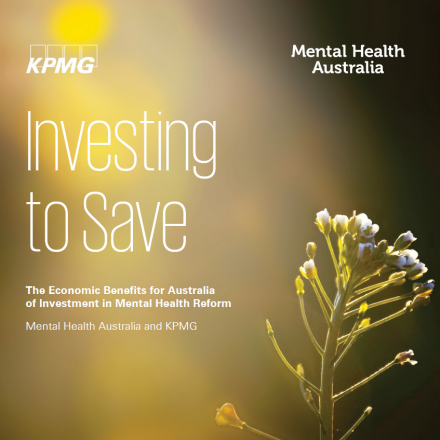Lunatics running the asylums? Well, we prefer different language these days, but why not?
Article by Indigo Daya, General Manager, Carer and Consumer Advocacy and Leadership, Mental Illness Fellowship Victoria
 Mental Illness Fellowship Victoria has created a new role that I am delighted to have been appointed to: General Manager, Carer and Consumer Advocacy and Leadership. This is an executive role in a major mental health organisation. Aside from the requisite leadership, strategic and technical skills, it is designated for a person with lived experience as a carer and/or consumer of mental health services.
Mental Illness Fellowship Victoria has created a new role that I am delighted to have been appointed to: General Manager, Carer and Consumer Advocacy and Leadership. This is an executive role in a major mental health organisation. Aside from the requisite leadership, strategic and technical skills, it is designated for a person with lived experience as a carer and/or consumer of mental health services.
In other words, my history of madness and distress, my years of experience in the psychiatric system and my experiences caring for my mother who struggled with her own mental health were all valued as criteria that helped me get this job. I believe the creation of this position is a watershed moment in our organisation’s history, and a strong example of thinking differently for the mental health sector.
Until recently it has been a rare thing for carers and consumers to hold senior positions of influence in the mental health sector, unless it was within our own consumer or carer-led organisations. We have begun to ‘make it’ in peer support work. Our experience is a fundamental prerequisite to do the job of peer work along, of course, with appropriate training. We are there in droves in the world of advocacy too. Like women entering the workforce, we consumers and carers have gotten in the door.
But also like the experience of women entering the workforce, there is a glass ceiling in place. This is in middle management and most particularly it is in the executive space where we have been notably absent; the space where most of the strategic decisions and directions are made. Does it matter whether we hold these positions of power or can others without our life experiences, but with good skills and intent, do the same job?
I think it does matter. It matters a lot.
As much as we may wish that our mental health services were just about good quality service delivery, in reality they are also always about human rights as well. These two areas of service and rights cannot be untangled.
People diagnosed with mental illness have a long and unhappy history of human rights abuse and socioeconomic disadvantage, exclusion, and discrimination. And so to run our mental health organisations without us involved at every level, including the seats of power, is to continue a paradigm of exclusion and paternalistic benevolence.
I do not for a moment suggest that others with professional expertise and experience do not have essential roles to play. Our sector is rich with talented, experienced, and very well-intended leaders. But if you leave us out, you will never get it right either. And we will continue to tell you this. Men were involved in the women’s suffrage movement – but they did not and could not lead it. White people were involved in the American civil rights movement too, but they did not lead it. But it was in the inclusion and alliances of different experiences of power that real change began to happen.
As we work in our sector to promote and build social inclusion in the broader community for people diagnosed with mental illness, we must also reflect this inclusion within our own organisations, structures, and in the sharing of power. In the words of one history’s greatest advocates for change for a disenfranchised people, Mahatma Gandhi invited us to ‘be the change we wish to see in the world’.
What is it that those of us with lived experience as consumers and carers bring to executive leadership in the mental health sector? We will bring new ways of understanding power and how it is used, we will redefine the paradigms in which we think and work, we will challenge potential colonisation of our experience and meaning, and we will bring diversity to how we think about our experiences and about recovery.
By the way, we do not want tokenistic roles that we are not suited to. We expect the same workloads and demands as everyone else, although sometimes we may need some reasonable adjustment.
I am sure that my presence on the executive team at Mental Illness Fellowship Victoria will at times be uncomfortable for both myself and others. In truth, it has already felt uncomfortable to me at times. But this is good – it is the essence of my job. To help us shift into uncomfortable places, to challenge old paradigms, to lead us in new directions.
To ensure that basic human rights and service delivery in mental health get better. Much better. Great, in fact. I look forward, with just a little trepidation, to embracing the future. And I invite other organisations to follow the excellent lead set by Mental Illness Fellowship Victoria.
__________
Do you have a comment on this story? Join the conversation on Twitter @AUMentalHealth
Article contributed to the newsletter Perspectives - August 2014. Please note that this article is from an individual contributor and does not necessarily reflect the views of Mental Health Australia




